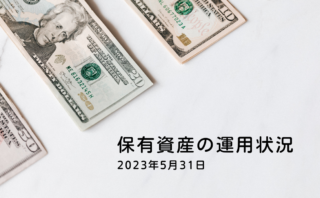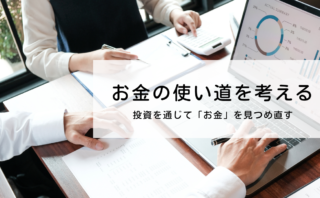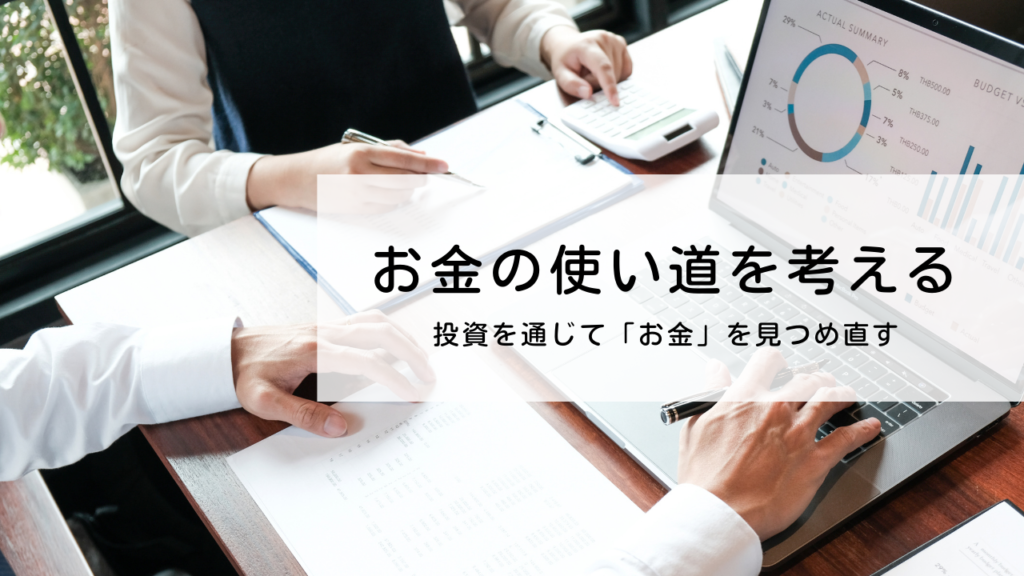ENG ver.
Hello, this is Pooh.
Today, I would like to talk about how to manage your money wisely.
Many people find themselves struggling with the issue of not being able to save money. Does this sound familiar to you?
If you’re one of those people, let’s start by reevaluating how you spend your money.
I used to be someone who would immediately spend my salary or bonus as soon as I received it. However, recently, I’ve started to make changes in how I use my money.
Here’s a tweet I posted when I received a bonus of 300,000 yen in December:
ボーナス30万円の使い道
・米国株投資 40,000円
・国内株投資 15,000円
・つみたてNISA用資金 100,000円
・現金で貯金 100,000円
・残りはちょっとした買い物など投資を始めてから無駄な買い物が減ってきたと実感。今は資産を増やすことのほうが楽しいです。#積立投資 #ボーナス
— かねのぷーさん@少額投資家 (@poohlivestokyo) December 4, 2020
・40,000 yen for investing in U.S. stocks
・15,000 yen for investing in domestic stocks
100,000 yen for a NISA investment
100,000 yen saved in cash
The rest for small purchases, etc.
Since I started investing, I’ve realized that I’ve reduced unnecessary spending. Now, I find it more enjoyable to grow my assets.
As you can see, I allocated most of the bonus towards investments and savings.
A significant factor in changing my approach to spending money has been a shift in my mindset over the past few years.
Therefore, in this article, I would like to share my thoughts on how I choose to spend my money.
While many people have vague ideas about money, not many deeply contemplate their spending habits.
By reading this article, I believe you’ll gain new insights into how to allocate your money.
The Trigger to Reevaluate How I Spend Money
Realizing I Didn’t Have Enough Money
The turning point that led me to reevaluate my spending habits was when I was shocked by the amount of my first paycheck after changing jobs.
After graduating from college, I worked overseas for a while. Later, when I found a job in Japan and returned home, that’s when it happened.
At that time, I had very little knowledge about taxes. The income tax in the country where I was working was quite low, and most of my salary was paid at face value.
Perhaps due to this, I made the decision to return home based solely on the presented gross salary, assuming that it would be enough for living expenses and rent.
However, in Japan, income tax is deducted from your salary, which was only natural. When I saw my net income for the first time, I became extremely anxious.
“At this rate, I can barely cover my monthly expenses, let alone save for retirement…”
Realizing this was a serious issue, I started by reevaluating my living expenses.
Money Doesn’t Grow Just by Depositing in a Bank
Feeling the urgency, I began by creating a household budget to track my income and expenses.
Then, I focused on reviewing fixed expenses and cutting down on unnecessary spending, which helped me improve my financial situation to some extent.
However, I realized that I hadn’t made any preparations for retirement funds or future savings.
From there, I started searching for ways to save money for the future.
The first thing that came to mind was a fixed-term deposit at a bank.
However, currently, depositing money in a bank doesn’t increase your assets.
I was completely unaware of interest rates, but deposit interest rates used to be higher in the past.
Depending on the bank, the current interest rates range from 0.001% to 0.20%.
I realized that even if I deposited money in a bank, my assets wouldn’t grow at all.
The Era of Managing Your Assets Yourself
Wondering how people secure their retirement funds, I began to research various options.
I found out that it has become an era where individuals have to manage their own assets and secure their retirement funds through investments.
The government has established systems such as NISA and iDeCo to encourage asset formation through investment.
In addition, corporate pensions have shifted to defined-contribution plans, and employees are now required to manage their own investments.
Society is changing at an unprecedented speed, and it has become difficult for governments and companies to guarantee citizens’ livelihoods until retirement.
We are no longer in an era where simply depositing money in a bank and receiving a pension until retirement guarantees a comfortable life. Now, individuals are expected to create assets through investments.
While public pension systems will likely continue to exist, the aging population and declining birth rate may strain the financial resources, and the necessary funds may increase as lifespans lengthen.
Moreover, if inflation progresses, the value of the money we are supposed to receive may decrease, making it difficult to maintain a satisfactory lifestyle.
Starting Systematic Investment to Secure Retirement Funds
I started implementing a low-cost systematic investment approach.
By investing a few thousand yen every month into index funds, I discovered through books and online sources that I could secure my retirement funds reliably.
I also realized that even with a small monthly investment, there are various benefits:
- The power of time and compounding allows assets to grow exponentially.
- Index funds provide diversification and have lower fees, reducing the chances of failure.
- Setting a monthly investment amount creates a mechanism for proactive savings.
With the belief that “I can do this too,” I began my journey of systematic investment with just a few thousand yen.
Initially, I had concerns, but I researched and learned about investing while gradually building up my investments.
For about five years, I have been engaged in investment vehicles such as investment trusts, U.S. stocks, defined contribution pension plans, and domestic stocks.
Through monthly contributions and investment, I have seen my portfolio grow from zero savings to approximately 5 million yen in present valuation.
As I continued to learn about investing, not only did my assets gradually increase, but my approach to managing money also underwent a transformation.

Changes Experienced Since Starting Investments
Started Buying “Assets”
One of the significant changes I experienced after starting investing was that I began to buy “assets.”
“Assets” refer to things that can generate money in the future.
Financial assets purchased through systematic investments, such as index funds, are prime examples.
By being cautious of high-risk investment products and excessive concentration, and engaging in appropriate management, assets can grow automatically through dividends and compounding effects.
In fact, I have witnessed dividend payments from U.S. and domestic stocks, as well as the gradual appreciation of my investment trusts. It often gives me a sense of money working for me.
I started considering the value of things
Since I began investing, I have started to think about the value of things.
For example, clothing is a necessity in daily life, but prices can vary greatly even for items of similar quality.
While a similar piece may cost around 2,000 yen at Uniqlo or GU, it could cost nearly 10,000 yen at a brand store.
When considering purchasing a 10,000 yen garment, I started to think:
- “How many shares could I buy with 10,000 yen?”
- “How much return would the shares I purchased for 10,000 yen generate annually?”
- “How much capital gain would the shares I purchased for 10,000 yen generate in the future?”
- “Will this garment that I’m considering buying for 10,000 yen bring more value than that?”
By considering the value of things before purchasing them, I have been able to reduce unnecessary spending and make progress in building my assets.
I now only spend money on necessary things
It is said that human desires are insatiable.
Even if we buy something we want, we will always desire something else, and there is no end to it.
Furthermore, we often buy things for show or to satisfy our desires, even though we don’t really need them.
Money should be spent on things that we genuinely feel are necessary. If we spend money to satisfy our material desires or to impress others, no amount of money will ever be enough.
For me, money is a means to attain freedom.
Having a substantial amount of money allows for a comfortable retirement, helps in challenging times like illness or injury, and enables me to pursue the things I want to do.
While I don’t indulge in shopping regularly, I don’t hesitate to spend money on things I genuinely feel I need, such as maintaining my health, exam preparation courses, travel, new and exciting activities, and meals with family and friends.
While everyone has the freedom to decide how to use their money, I believe it’s worth reevaluating our spending habits as we often engage in unnecessary expenses without realizing it.
Summary
In this discussion, I have shared my approach to managing my finances.
Based on my past experience of quickly spending my salary and bonuses, I realized the need to reassess how I handle money.
Recognizing that simply depositing money in a bank does not grow assets, I understood the importance of personally investing my assets and started engaging in small-scale investment to secure my retirement funds.
As I steadily pursued investment and saw my assets grow, my spending habits underwent a transformation.
I began purchasing assets that generate future value and started considering the value of things before making purchases.
I now spend money only on what I truly need, reducing unnecessary expenses.
We are no longer in an era of excessive consumption, where possessions such as houses and cars define our status.
There is no need to be swayed by appearances or preconceptions when spending money. Instead, I believe money should be used for the benefit of oneself and one’s family, as well as towards realizing personal goals.
Using money for temporary satisfaction leads to a never-ending cycle of spending.
To ensure a future where we can enjoy life with peace of mind, it is crucial to start accumulating assets from now onwards.
For those struggling to save money, it is advisable to begin by reevaluating how money is being spent.
Thank you for reading this far.
Pooh
JPN ver.


コメント